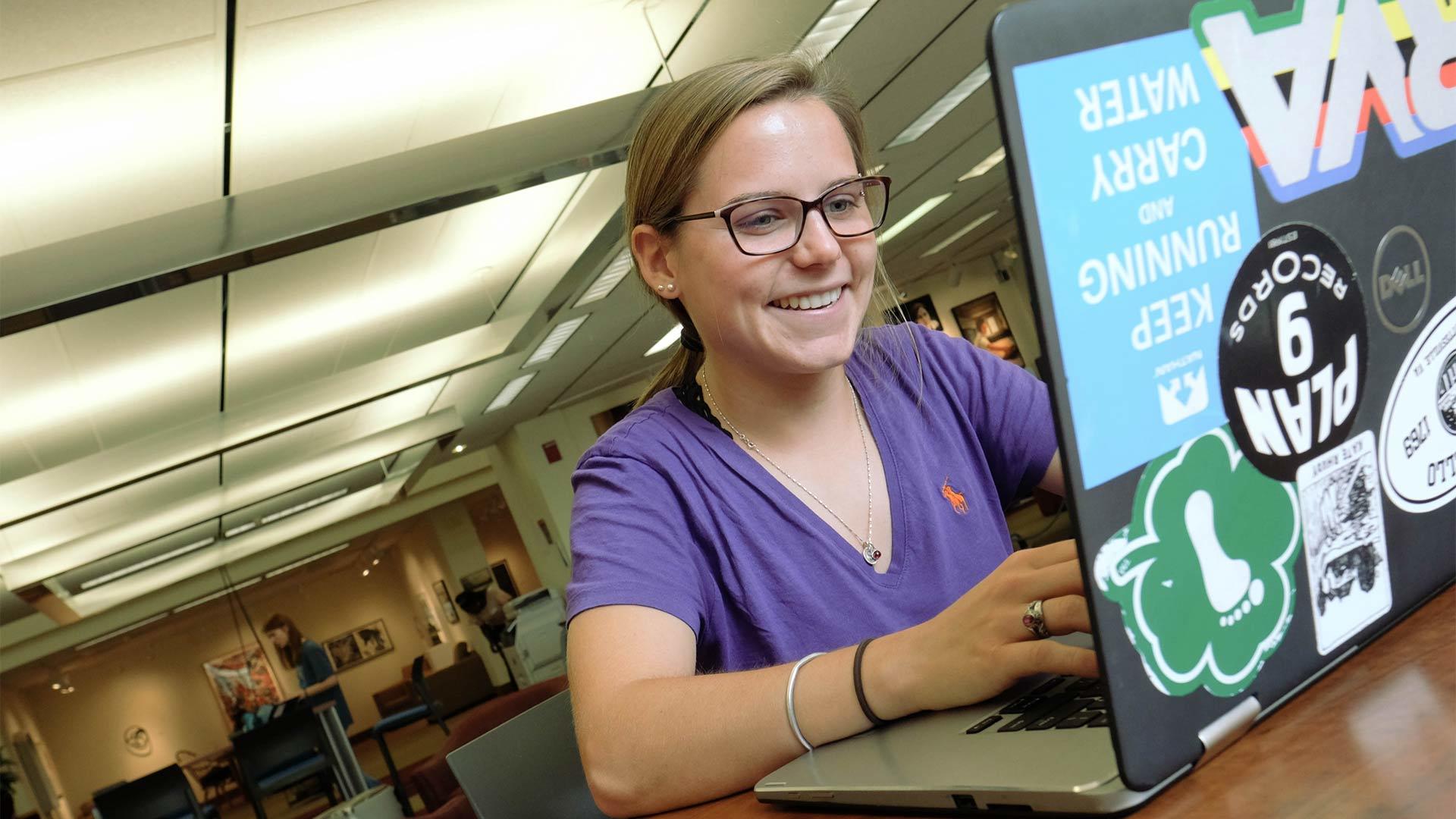
Internships are the epitome of experiential learning. They allow students to put classroom theory to practice while experiencing day-to-day functions of the area they’re interested in.
While the pandemic has caused a shift in company processes, Guilford Guide Amber Slade shares how you can still land that dream internship.
“I have told faculty and students over these past few months to prioritize their health and safety first, while encouraging them to get creative with what is considered an internship right now,” Amber says. “We've had students shadowing in physical therapy spaces, working with marketing firms from home, completing research projects with their faculty members, and everything in between.”
Amber shares these three top tips for landing a virtual internship:
1. Professionalism is not the monolith it once was.
You should not have to sacrifice who you are to enter professional spaces. Many people, especially women and students of color, spend time transforming into a professional version of themselves they think is acceptable in society. They are in fact already capable of navigating those spaces. Of course, there will be some cultural differences between one field and the next, but don't feel like you have to turn into a robot to be there. “Imposter syndrome and biases are real, but I'm here to tell you that you belong there, too,” Amber says.
2. Stop sending in blind applications.
Apply for the internships or jobs that interest you, and after you hit submit reach out for an informational interview. These meetings allow you to learn more about the company and politely express interest in the position. The requests don’t always land, but they can go a really long way when they do. Landing an informational interview is almost like scheduling your own pre-interview — only you're the one asking the questions. Reach out to your Guilford Guide for help with that.
3. Tailor your resume and cover letter to each position.
Prepare a master resume that includes all of your info and experience. It can be any length — really. That way, all of your info is in one place when you are ready to submit a targeted resume to an employer or internship host. And yes, you need a targeted resume and cover letter each time. But you don't always have to start from scratch.
One last piece of advice from Amber: “Lean on your transferable skills. Don't pass up an internship experience based on the title alone. Consider everything you've experienced in and out of the classroom. If you meet the majority of the minimum requirements, apply!”
Register to join Amber at 12 p.m. on Sept. 22 for her presentation, “Career Conversations Series: Internships and COVID-19,” and make an appointment with your Guilford Guide via Navigate. Interested in learning more about Guided Discovery and advising at Guilford? Schedule a personalized visit to campus — appointments are now available.

